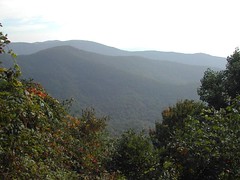Age and experience in journalism
There's a fascinating discussion going on, in case any of you missed it, on Romenesko and journalism prof Chris Daly's website, on the Washington Post story which, instead of dispelling rumors about Barack Obama, seemed to only publicize them further. (Mentioned here last week.)
Daly wrote about the story and its obvious shortcomings, something pointed out by many bloggers and journalists, but took it further by doing a few Web searches on the Post reporter who wrote it, and discovered he is in his 20s and only a few years out of college (but with an impressive resume already). Daly wondered why Post editors didn't scrutinize a front page political story by such a new reporter.
Post exective editor Len Downie blasted Romenesko for linking to Daly's column. Daly has responded to the other criticisms of the posting. Much of the response is on Poynter, including Dave von Drehle's comment, and a reaction from Poynter's Jim Naughton rebutting Downie.
Fascinating stuff to those who have seen newsrooms get younger and younger over the years. I will say, though, that when I started at the Post in 1968 many of the reporters were in their late 20s. But the stars, on the national and foreign desks, and certainly the political writers, were almost entirely in their late 30s or 40s, or older. And there were plenty of older reporters on the metro and other desks who made sure there was a knowledge of local history in the newsroom.
At the Miami Herald, the older reporters disappeared over the years until there were very few left, and new reporters, fresh out of j-school or a first job at a smaller paper, arrived constantly. Some stayed at least into their 30s before moving on, but they almost always moved on. The sense of losing history was palpable at times.
It's the sort of thing that journalists worry about as newspapers cut their staffs over and over. Says one commenter on Daly's journalismprofessor.org site:
The focus here, of course, should not be the age of the reporter but the diligence of the editorial staff in checking stories before they go to print. Downie isn't touching that. (Horse's Mouth's take.) At the Post, though, ombudsman Deborah Howell did.
More links can be found by browsing Romenesko over the last few days.
(Added later:) Will Bunch has a powerful post on the relevance of this whole flap to the state of journalism today:
(Updated:) Also, Trevor Butterworth, on Huffington Post: Dotards and Maybe Fools: Bacon Gate Turns Into a Brawl.
Daly wrote about the story and its obvious shortcomings, something pointed out by many bloggers and journalists, but took it further by doing a few Web searches on the Post reporter who wrote it, and discovered he is in his 20s and only a few years out of college (but with an impressive resume already). Daly wondered why Post editors didn't scrutinize a front page political story by such a new reporter.
Post exective editor Len Downie blasted Romenesko for linking to Daly's column. Daly has responded to the other criticisms of the posting. Much of the response is on Poynter, including Dave von Drehle's comment, and a reaction from Poynter's Jim Naughton rebutting Downie.
Fascinating stuff to those who have seen newsrooms get younger and younger over the years. I will say, though, that when I started at the Post in 1968 many of the reporters were in their late 20s. But the stars, on the national and foreign desks, and certainly the political writers, were almost entirely in their late 30s or 40s, or older. And there were plenty of older reporters on the metro and other desks who made sure there was a knowledge of local history in the newsroom.
At the Miami Herald, the older reporters disappeared over the years until there were very few left, and new reporters, fresh out of j-school or a first job at a smaller paper, arrived constantly. Some stayed at least into their 30s before moving on, but they almost always moved on. The sense of losing history was palpable at times.
It's the sort of thing that journalists worry about as newspapers cut their staffs over and over. Says one commenter on Daly's journalismprofessor.org site:
Hmm. Funny how no one was questioning stuff like this 10-15 years ago when the attitude was you needed "experience" to be hired, much less land a juicy beat.
It's just more hypocrisy from an industry that wants to hide behind lies. The truth is newspapers want younger people primarily for the lower salaries. They simply don't have the guts to admit it.
The focus here, of course, should not be the age of the reporter but the diligence of the editorial staff in checking stories before they go to print. Downie isn't touching that. (Horse's Mouth's take.) At the Post, though, ombudsman Deborah Howell did.
More links can be found by browsing Romenesko over the last few days.
(Added later:) Will Bunch has a powerful post on the relevance of this whole flap to the state of journalism today:
...we're just doing what we journalists do best in 2007, just circling the wagons. Too bad Gen. Custer's not around so we ask him how that strategy worked out for him.
(Updated:) Also, Trevor Butterworth, on Huffington Post: Dotards and Maybe Fools: Bacon Gate Turns Into a Brawl.
Labels: journalism, washington post





0 Comments:
Post a Comment
<< Home